
More-than-Moore (MtM) is a concept and strategy in semiconductor design that extends beyond the traditional Moore's Law scaling of packing more transistors into a given silicon area (monolithic chips) to achieve performance gains. The MtM philosophy is fundamental as the physical and economic limits of traditional silicon scaling become apparent.
MtM aims to enable new applications by combining different technologies according to their functional needs rather than just focusing on making transistors smaller or faster. This strategy is increasingly seen as essential for the future of the semiconductor industry, enabling innovation in areas where silicon chips are running out of room to provide more performance gain.
The primary use of MtM is for system-on-a-chip (SoC) design and manufacturing, mainly because SoCs, sooner or later, will reach the reticle (photomask) limit. The reason is the theoretical EUV-based lithography reticle limit of 858mm², as the latest generation GPUs (following a monolithic approach) are already closer to 800mm².
It implies that there is little to no room to pack more transistors. Also, adopting the most advanced technology node to gain performance without increasing the area is slowly turning into a costly affair, with 3nm requiring more than $700 million to productise and 2nm needing more than $1 billion. Thus, there is a dire need to innovate SoC development.
MtM using RISC-V, chiplets, and heterogeneous integration
Out of all, the most promising combination of design and manufacturing approaches that will potentially speed up MtM adoption are RISC-V, chiplets, and heterogeneous integration.
Denne historien er fra December 2023-utgaven av Electronics For You.
Start din 7-dagers gratis prøveperiode på Magzter GOLD for å få tilgang til tusenvis av utvalgte premiumhistorier og 9000+ magasiner og aviser.
Allerede abonnent ? Logg på
Denne historien er fra December 2023-utgaven av Electronics For You.
Start din 7-dagers gratis prøveperiode på Magzter GOLD for å få tilgang til tusenvis av utvalgte premiumhistorier og 9000+ magasiner og aviser.
Allerede abonnent? Logg på
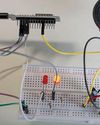
ESP32-Powered AUDIO-VISUAL SIREN
This sound alternator is designed to simulate the effects of a police siren, combining sound and light to create a dynamic audio-visual experience.
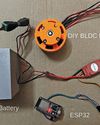
BLDC MOTOR With Web-Based Speed Control Using ESP32
Integrating wireless control into brushless direct current (BLDC) motor systems opens up exciting possibilities for applications such as remote-controlled cars, robots, and other innovative systems.
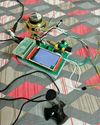
Pi Zero Portable BILINGUAL TRANSLATOR
This system is designed as a bilingual translator, leveraging the gTTS library to support multiple Indian languages, including English (en), Bengali (bn), Gujarati (gu), Hindi (hi), Kannada (kn), Malayalam (ml), Marathi (mr), Tamil (ta), Telugu (te), and Urdu (ur).
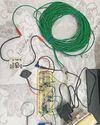
Op-Amp-Based VEHICLE THEFT DETECTOR
A simple, low-cost device can effectively alert homeowners or occupants if a parked vehicle is moved or tampered with.
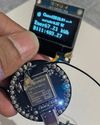
loT SMART METER With Dashboard
Energy meters in homes track electricity usage, enabling accurate billing by governments and providers.

Choose The Right Cloud Platform For Implementing loT PROTOCOLS
Working with loT protocols like MQTT, AMQP, and CoAP on cloud platforms is essential for developing scalable and efficient lol applications. The choice of the programming platform will depend on factors like project requirements, existing skills, and target devices. Leveraging the appropriate libraries and cloud services can enable seamless integration of lol devices with cloud-based applications.

Why TMR SENSORS Lead Next-Generation Design
TMR sensors are gaining traction in industries needing precision and power efficiency. What makes them the go-to choice for modern designs?
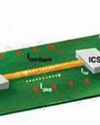
DESIGNING PCBs For EMI Management
Electromagnetic interference can derail your PCB’s performance. EMI management is not just a technical necessity but a hallmark of exceptional PCB design.

CUTTING COSTS, NOT CORNERS: Building Large Scale Applications With Open Source Software
Here are some strategies and best practices for leveraging open source to create enterprise-grade web and mobile applications without sacrificing quality or functionality.

"We Are One Of India's Very Few State Bodies To Manage The Entire Lifecycle Of The Electronics EcosystemFrom Approvals To Subsidies."
What is Gujarat State Electronics Mission GSEM), and how is it attracting major investments in electronics manufacturing, particularly semiconductor manufacturing, to Gujarat? To delve deeper, Electronics For You’s Nijhum Rudra spoke with Manish Gurwani, the head of GSEM. Here is what he revealed...